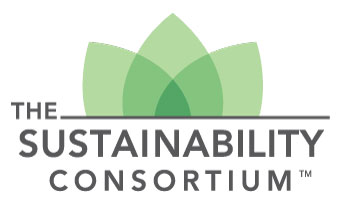Novozymes joins The Sustainability Consortium – a global effort to improve product sustainability
Company to share product life cycle assessment expertise with group.
BAGSVAERD, Denmark – August 2, 2010 – Novozymes has become a founding member of The Sustainability Consortium, a new global organization with aims to improve the sustainability of consumer products. The company will join a diverse group of academics, governments, non-government organizations and businesses to fulfill The Sustainability Consortium’s mission of driving a new generation of products and supply networks that address environmental, social and economic imperatives. Other members include Dell, Disney, Wal-Mart, WWF and BASF to name a few.
“Novozymes is recognized for being among the best in sustainability development and their expertise in bio-innovative products and solutions will be a tremendous value and addition to the efforts of The Sustainability Consortium,” said Dr. Jay Golden, co-director of The Sustainability Consortium.
As a world leader in industrial biotechnology serving more than 40 industries, Novozymes uses the power of bioinnovation to help increase product quality and yields while reducing consumption of scarce natural resources, water and energy. The company’s unique approach applies nature’s own machinery (enzymes and microorganisms) to industrial processes, pharmaceuticals and consumer goods to make them more sustainable.
“Society must find new ways to meet the needs of a growing population while reducing our impact on the environment,” said Claus Stig Pedersen, head of sustainability at Novozymes. “In short, we must produce more with less. Our goal in working with The Sustainability Consortium is to help develop the tools, metrics and strategies that will create more sustainable consumer products for the future. Today Novozymes is a supplier and partner to many different consumer product value chains, and this is a unique opportunity to help make them more sustainable.”
Since 1994, Novozymes has been developing its expertise in the field of life cycle assessment (LCA), a comprehensive tool to measure the environmental impact of products throughout their life span. The company’s team of internationally-recognized LCA experts works to document the environmental impact of a range of products from bread to beer to biofuels. In 2009, Novozymes’ products helped its customers reduce CO2 emissions by 27 million tons. Novozymes’ ambition is to reduce the world’s CO2 emissions together with its customers by 75 million tons by 2015.
Novozymes has received a number of recognitions for its sustainability performance with inclusion on such lists as:
• Dow Jones Sustainability Index for eight years, including a Gold Class rating in 2009
• The Global 100 Most Sustainable Corporations in the World by Corporate Knights and Innovest Strategic Value Advisors Inc. for five years
• FTSE4Good Global and Europe indexes
• Nordic Sustainability Index
• AMEX Cleantech Index
• SB20 – The World’s Top Sustainable Business Stocks – by SustainableBusiness.com
• World’s Most Ethical Companies by the Ethisphere Institute for two years
About the Sustainability Consortium
The Sustainability Consortium, an independent organization of diverse global participants – academics, governments, NGOs, and businesses – works collaboratively to build a transparent, scientific foundation that drives innovation to improve consumer product sustainability. The Sustainability Consortium is jointly administered by Arizona State University and the University of Arkansas. Learn more at www.sustainabilityconsortium.org
The Sustainability Consortium is a part of the Global Institute of Sustainability at Arizona State University (ASU); and the Applied Sustainability Center at the University of Arkansas.
The Global Institute of Sustainability is the hub of ASU’s sustainability initiatives and home to the first of its kind School of Sustainability; it works to advance research, education, and business practices for an urbanizing world (http://sustainability.asu.edu).
The Applied Sustainability Center at the University of Arkansas leads organizations in the retail and consumer goods industries toward sustainable practices that support an economy built around people, planet, and profit. The center is part of the Sam M. Walton College of Business and serves multiple disciplines across campus (http://asc.uark.edu).

